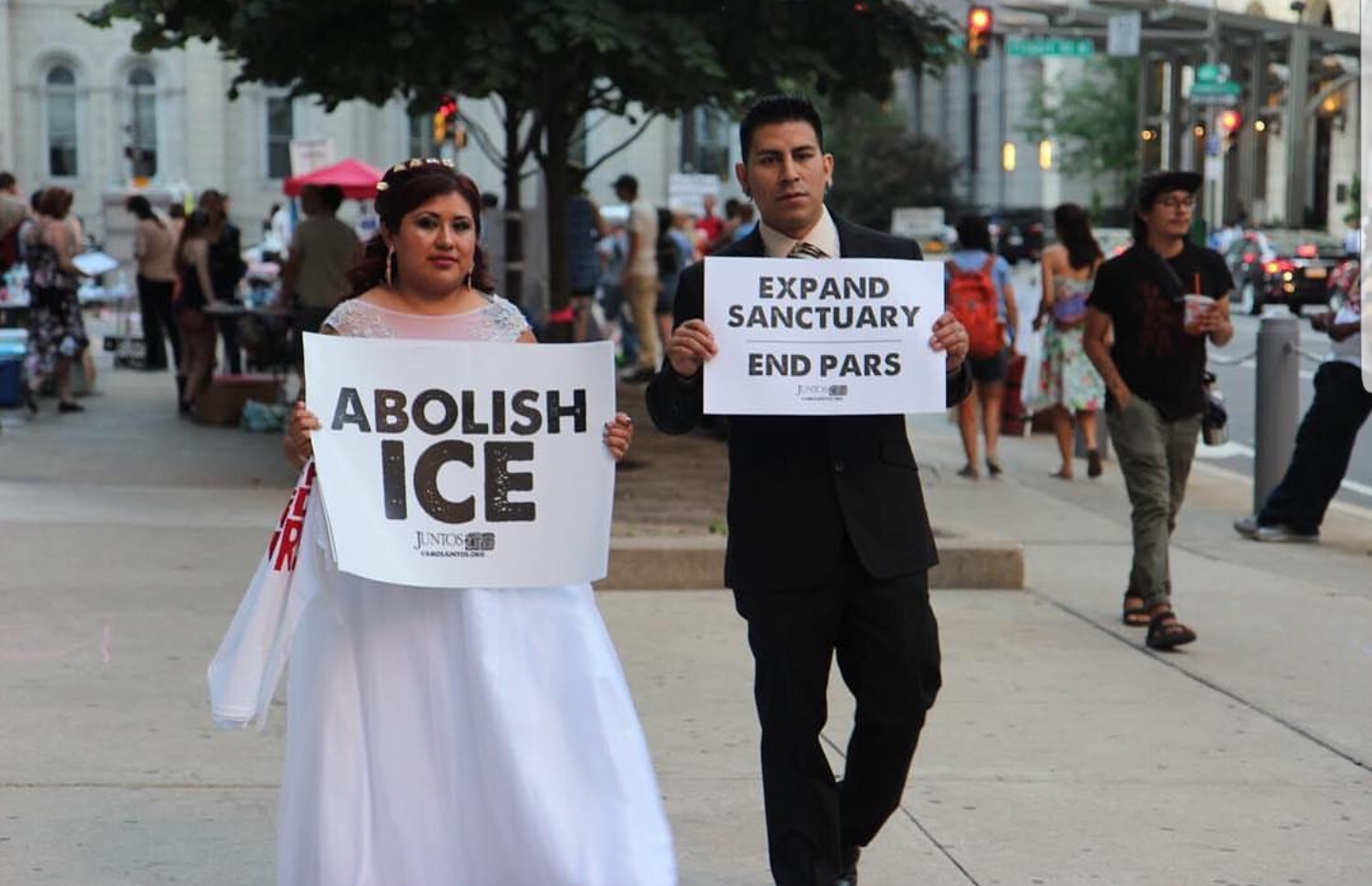
PARS has ended, but work continues for immigrant rights activists
ICE no longer has access to Philadelphia's real-time police arraignment database, but activists say it is one battle won, with many to go, for the immigrant…
The city’s contract with the Immigration Customs and Enforcement (ICE) Agency, which allowed ICE access to Philadelphia’s Police Arraignment Reporting System (PARS), has officially ended. The contract expired on Aug. 31, with less fanfare than when the announcement was made on July 27 that the city would not renew the contract. But the impact of the decision continues to set the tone for the work ahead, activists say.
Linda Hernández, who visited the Occupy ICE encampment outside of City Hall on her wedding day a few weeks before Mayor Jim Kenney announced that he would not renew the PARS contract, said that she and other activists who work with the immigrant rights organization Juntos are “really excited,” but that there is much work still left to be done to make the city safer for immigrants.
“It doesn’t mean that ICE is not here. But it makes [us] feel a little confident, thinking that our information is not gonna [be shared] with ICE,” she said, noting that she knew people who as of a couple of months ago were deported after they were stopped by police for minor traffic violations due to the fact that ICE had access to the police’s PARS database.
Yesterday, Juntos members got married in #Philly and decided to stop by the #OccupyICEPhilly encampment at city hall to say, “True Love has no Borders” #AbolishICE #EndPARS #ExpandSanctuary pic by @MiladyNazir pic.twitter.com/lwdfa4bT3Y
— Juntos (@Vamos_Juntos_) July 9, 2018
Hernández’s testimony is in line with findings that Mayor Jim Kenney and City Solicitor Marcel Pratt cited in their announcement to end PARS, which detailed how local ICE officials had been inappropriately using the database to target individuals - such as witnesses or victims to crime and those who self-reported that they were not born in the U.S. - despite the fact that these people were not arrested for any crime.
Prior to the July 27 decision, the city met with ICE officials, and found that ICE “rather than allay, in fact confirmed” many residents’ concerns that the agency was using the information to enact immigration enforcement against otherwise law-abiding residents, as well as racially profiling people whose information they had access to in the PARS system by using the database to identify suspects by only their last names and country of origin.
Kenney and others acknowledged the key role that the Juntos organization played in bringing an end to the PARS contract.
“We commend Juntos for advocating for the city to discontinue ICE’s access to PARS and thereby preventing people from losing homes and family members,” said Aisha Mohammed of Project SAFE in a press statement from The Coalition for a Just District Attorney, of which Juntos is a member. “As an organization that supports people caught in the criminal justice system due to engaging in crimes of poverty, any effort to divert people from the incarceration and deportation to services, resources and treatment goes a long way towards increasing public safety and health and creating a more robust city.”
RELATED CONTENT
Though the fact that the contract has now expired is cause for celebration and allows immigrants more freedom to report concerns to police or come forward with information, the battle is not over, said Hernández.
“I don’t think this is going to end," she said. "I think we have to keep working.”
To that end, Juntos has continued to work on educating residents and members of the community about their rights and how to respond to ICE's actions through their “Community Resistance Zones” program, and is continuing to push the shutdown of the Berks County Residential Center, also known as the Berks Family Detention Center, in Leesport, PA, where approximately 20 immigrant families are being detained.
Our first Community Resistance Zone 2.0 legal observer training is underway! Huge thanks to Up Against The Law for their support in this training! #ResistanceZone #CRZ #legalobservers #ChingaLaMigra pic.twitter.com/YEzTYVbqsN
— Juntos (@Vamos_Juntos_) September 1, 2018
Hernández has been in the U.S. since she was 17, for more than 16 years now. She said that she cannot imagine what it would be like to be uprooted from her life here in the United States to be sent back to a Mexico she now barely knows.
“We’re not criminals. All we want is to work and get a better life for our kids. That’s why we’re here. Because we want a better future for our kids,” said Hernández, whose own 12-year-old daughter, Ashley Téllez, has also become involved in Juntos and spoken out at rallies around the city in defense of the rights of her mother and other immigrants.
Hernández said that Juntos’ and other activists’ main demands continue to be to abolish ICE and to shut down the Berks County Residential Center.
“As immigrants, we have to stay together, we have to fight together. It’s just another battle that we have to fight.”











LEAVE A COMMENT: